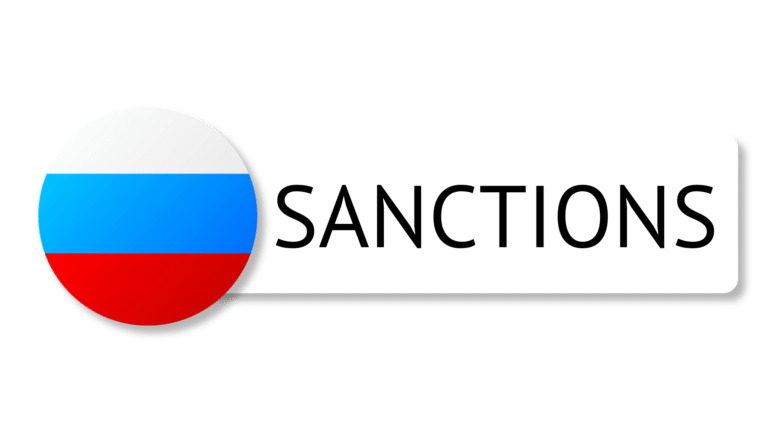Recent news that both South Africa and Nigeria have been added to the Financial
Action Task Force Greylist (FATF Greylist) is a matter of grave concern to all the dedicated men and women, at every level, who struggle against the problems of corruption every day.
Both nations have issues that can be laid at the door of corruption and, despite their
stated intentions, have been deemed to have failed to meet international obligations to
tackle money laundering, terrorist financing, and other financial crimes. The result of
this is that they have put at risk efforts to tackle transnational crime and the gangs that profit from it, and they have allowed the perception that corruption is now endemic and impossible to tackle to take root. As a result, they are now considered by the Financial Action Task Force FATF to be “jurisdictions under increased monitoring”.
The FATF’s mandate “recognises the need for FATF to continue to lead decisive,
coordinated and effective global action to counter the threats of the abuse of the
financial system by criminals and terrorists, and strengthens its capacity to respond to these threats that all countries face.”
The FATF monitors performance in the area of money laundering, terrorist financing, and other financial crimes. It is also involved in the illegal financing and proliferation of nuclear weapons.
In short, it is a global monitor of corruption. The FATF operates three “levels”.
High-risk jurisdiction; often referred to as the Blacklist. North Korea, Iran, and Myanmar are currently the only nations on the Blacklist.
Jurisdiction under Increased Monitoring; often referred to as the FATF Greylist.
The final level is those nations that are compliant with their international obligations to
combat money laundering, terrorist financing, and other activities monitored by the
FATF.
Nations that find themselves on the FATF Greylist will agree on a series of actions to rectify
their non-compliance. South Africa has agreed on an eight-point plan, while Nigeria has
agreed on a nine-point plan.
What is the impact of the FATF Greylist on an economy?
The impact to a nation of being placed on the FATF Greylist can be significant and
becomes more so the longer that a nation is listed on it. The objective of a nation must
be to put in place the correct counter corruption measures so that they are only on the
FATF Greylist for a limited time.
The severity of the impact depends on the area of non-compliance. For example, non-compliance in the area of terrorist financing can have far more serious consequences
then other areas of non-compliance.
The cost of cross-border financing is likely to increase. Banks and financial institutions will seek to protect their own interests from possible exposure to money laundering and other financial crimes. They are likely to step up their due diligence processes which will increase the cost of doing business both at home and overseas.
Loss of faith in the financial institutions of an FATF Greylist nation.
Similarly to cross-border financing, due diligence processes are likely to increase, and the loss of faith may mean that companies and foreign financial institutions look elsewhere for their international partners.
The resulting loss of business will not only impact individual financial institutions but could affect the financial sector as a whole.
Restriction of nesting and downstream correspondent financial links.
This can affect the ability of a bank to conduct transactions effectively through its network of respondent banks and to access other financial services. SWIFT (Society for Worldwide Interbank Financial Telecommunications) cooperates with sanctions laws and with law enforcement agencies. It transmits 5 billion messages a year throughout its network of financial institutions.
Since 2011 the United States has tracked terrorist financing and has done so through the SWIFT network. So there could be implications for financial institutions in greylisted nations here too.
International trade, foreign investment, foreign currency inflow, and aid.
As foreign nations, corporations and businesses, and aid agencies seek to protect their own interests from corruption, trade, investment and foreign currency entering a
greylisted nation are likely to fall.
Companies prepared to do business in FATF greylist nations often increase their due diligence and counter corruption measures to protect themselves not only from the local jurisdiction but from their home jurisdiction as well.
For example, a US company giving bribes to corrupt officials could face prosecution in the nation in which they are doing business, but would also be breaking US law and could be subject to persecution there too.
The scenario is similar for foreign investors and aid providers who will seek to protect their own interests so investment and aid could reduce as well.
Payment delays and the impact on the supply chain
The result of changes in the way that banks do business in terms of increased due
diligence is likely to slow transaction speeds, which could have a knock-on effect on the supply chain.
Large organisations at the top of the supply chain could experience slower payment
times from large contracts, particularly internationally, which are often passed down the supply chain, delaying payment to smaller businesses that are more vulnerable to
payment delays and the impact on their cashflows.
Businesses could be at risk of running out of money and going bust or having to make
savings, particularly through shedding employees to maintain a positive cash flow.
Downgrading of sovereign credit and business ratings
International credit rating agencies may reduce the credit rating for a country that is
blacklisted, affecting its ability to trade internationally and secure finance. That said,
South Africa’s credit rating was moved from “junk” to “stable” in April 2022 by Moody’s.
Economic Sanctions imposed by the World Bank, IMF, and other global financial institutions.
When sanctions are imposed, which is possible for the most serious breaches of the FATF Code including terrorist financing, nations, and their businesses will find it difficult,
if not impossible to do business overseas or secure foreign investment and financing.
Certainly, the cost of borrowing will increase as financial institutions mitigate their exposure to risk. This will include organisations like the World Bank and IMF. The ability of the greylisted nation itself to secure finance will be severely restricted, or become
more expensive.
What is the impact of FATF greylisting on communities?
The impact on communities and people in greylisted nations is both simple and serious.
As businesses struggle to secure overseas investment and business, tax revenues
could fall, and unemployment could rise as businesses seek to protect their profitability.
Foreign companies are less likely to enter an economy that is greylisted, so
opportunities for new employment and economic growth through this route are
hampered.
Some companies may opt to pull out of a nation altogether or downgrade their operations. The cost of doing business will increase as foreign companies increase their due diligence and counter corruption activities.
The Government may be cut off from foreign investment and international routes to
finance too so could struggle to deliver social, health, and other policy deliverables.
The knock-on effect for communities and people could be an impact on levels of
employment, social, health, and infrastructure improvements slowed or stopped, and a reduction in wealth.
This is a worst-case scenario depending on the length of time that a country is on the Greylist. The longer it is, the more severely communities could feel these effects.
Are training and education the answer to greylisting?
The answer is, of course, for nations to work transparently with the FATF to address the
areas of non-compliance. It is usual for the FATF to provide a plan to work towards, as
they have in the case of South Africa and Nigeria.
Those areas of compliance will require an element of education and training so that key personnel, whether they are civil servants, law enforcement, or prosecutors and investigators, are armed with the skills and knowledge that they need to not only deliver the necessary change but to maintain those changes and build on the baseline that they achieve with a FATF Greylist exit plan.
An inadequately trained and educated workforce may be able to address the issues at hand and deliver the necessary change to meet FATF requirements if there is strong political leadership. This short-term approach, however, is likely to rely on luck rather than carefully considered strategy.
But addressing the longer-term challenges of detecting, investigating, prosecuting, and ultimately preventing corruption is unlikely to be successful without knowledge and understanding of counter corruption theories and methodologies, and synchronized and coordinated multi-jurisdictional activities that ensure that those that practice, or profit from, corruption is not only actually brought to justice but also that justice is seen to be done by the populace.
So training and education in sensitive and practical solutions that are relevant to the geography, history, and the real problem being faced is the key to delivering the necessary activities to achieve compliance with international obligations, and the longer-term implications of this training are positive in terms of a nation’s ability to tackle and defeat corruption.
That could be the activities like money laundering and terrorist financing that the FATF monitors, and other financial crimes including state capture and bribery.
These activities can exist at every level of government, including as far as heads of state (former President Zuma of South Africa for example), so trained and empowered civil servants, law enforcement, and prosecutors are critical to prosecuting even the most senior officials.
How can SARCOE help Greylist countries?
The South Africa Regional Centre of Excellence in Integrity is well positioned to provide the state-of-the-art training that governments will need to develop the necessary skills to meet the national obligations to tackling terrorist financing, money laundering, and other financial crimes that are described in the FATF’s mandate.
Training is provided by the Pavocat-Stellenbosch Academy, a collaboration between Stellenbosch University and Pavocat South Africa (PTY) which specialises in Counter Corruption, Human Rights, and the Law of Armed Conflict.
This training is developed and delivered by experts from around the globe who have decades of practical experience in actual delivery rather than theory.
The P-SA is based in and ordinarily operates from Stellenbosch University’s Law Faculty, but its courses can be delivered in a variety of ways and in any given jurisdiction.
Without exception, all the short courses offered by the PSA:
● Are accredited by Stellenbosch University;
● Are taught by expert practitioners with decades of experience;
● Reach the rigorous academic standards expected by and from Africa’s foremost university
● Are highly practical in nature and directly relevant in their application.
Depending upon their nature, the courses may run for up to three weeks. They are designed and intended to enhance the professionalism and effectiveness of practitioners engaged in countering corruption.
The training and development provided through SARCOE are tailored to meet the specific requirements of governments, and public and private sector organisations. The learning outcome for governments investing in the state-of-the-art training provided by SARCOE is to ultimately provide the knowledge and skills required to exit the FATF Greylist and meet FATF standards as expeditiously as possible.
Read our media release “FATF Grey Listing Presents South Africa a Unique Opportunity to Eradicate the Scourge of Corruption in Government and Publicly Owned Utilities But Action Must be Swift says SARCOE ThinkTank”




